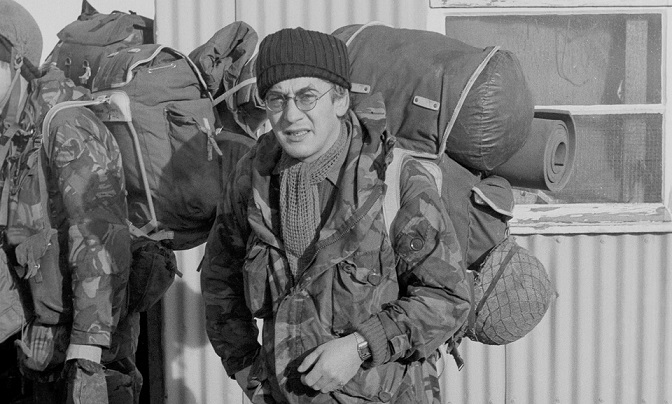Home > Media News >

The journalist John Shirley, who has died aged 74 after suffering from cancer, was highly effective and versatile in areas calling for an in-depth approach – current affairs television and the Sunday press. His qualities of curiosity, tenacity and an ability to explain clearly first became evident in 1968 in the American deep south when he was the researcher for a documentary for the ITV series This Week, about the populist governor of Alabama, George Wallace. It was during this period that he met Martin Luther King, Rosa Parks, and Stokely Carmichael – encounters that inspired him throughout his life.

John shared a Reporter of the Year award for his coverage in the Sunday Times of the Brixton riots of 1981, near his home in south London, and the following year won a European award for news photography of the Falklands war, thousands of miles away. A man with a hinterland of intellectual curiosity, John was interested in archaeology in Israel, where he went on three digs over the years. He loved both classical music, especially Bruckner and Mahler, and the modern jazz of 1950s New York. He had always been interested in psychiatry and underwent Freudian analysis in the 1970s. In retirement, he undertook an intensive course for a postgraduate diploma in Jungian psychodynamic theory and practice. By the time he was awarded his diploma, he was already counseling patients, work he found intellectually fascinating and spiritually rewarding.
Born in Ealing, west London, he was the son of Arthur Shirley, a shopkeeper, and his wife, Rosa, a teacher. None of his later interests or achievements could have been easily foreseen when John left Drayton Green secondary modern boys’ school in west London in 1960 aged 16. On leaving the school he got a job on the local paper, the Middlesex County Times, and soon moved to the Newcastle Evening Chronicle, a big paper with a reputation as a nursery of journalistic talent. He joined This Week in 1965, and his intellectual curiosity was so conspicuous. He graduated in philosophy, politics, and economics from St Peter’s College in 1970.
Then came work as a reporter with some of the most adventurous journalists of his generation on two more commercial TV current affairs programmes, Granada’s World in Action and The London Programme at London Weekend. He joined the Sunday Times in 1979, while Harold Evans was still the editor, and in 1983 was appointed chief reporter, domestic and foreign.
In 1990 he moved to the Observer as news editor, where he met the journalist Kate Kellaway, and the following year they had a son, Leo. After the relationship ended, and in an atmosphere dominated by office politics about the paper’s ownership, John left the Observer in 1991.
The more regular routine of newspaper production enabled him to devote more time to bring up his son. His work in various parts of the Guardian included the obituaries desk, where, alongside writing and editing, he applied his zeal to expanding the range of entries to the daily Birthdays. On his departure in 2008, he kept up a part-time involvement with journalism at the Catholic journal The Tablet while embarking on his counseling career.
Right Now

18 Jul, 2025 / 09:39 AM
Uber to invest 300 million-dollar in EV maker Lucid as part of robotaxi deal

21 Jul, 2025 / 08:40 AM
Google’s AI can now call local businesses to check prices and availability on your behalf
Top Stories








